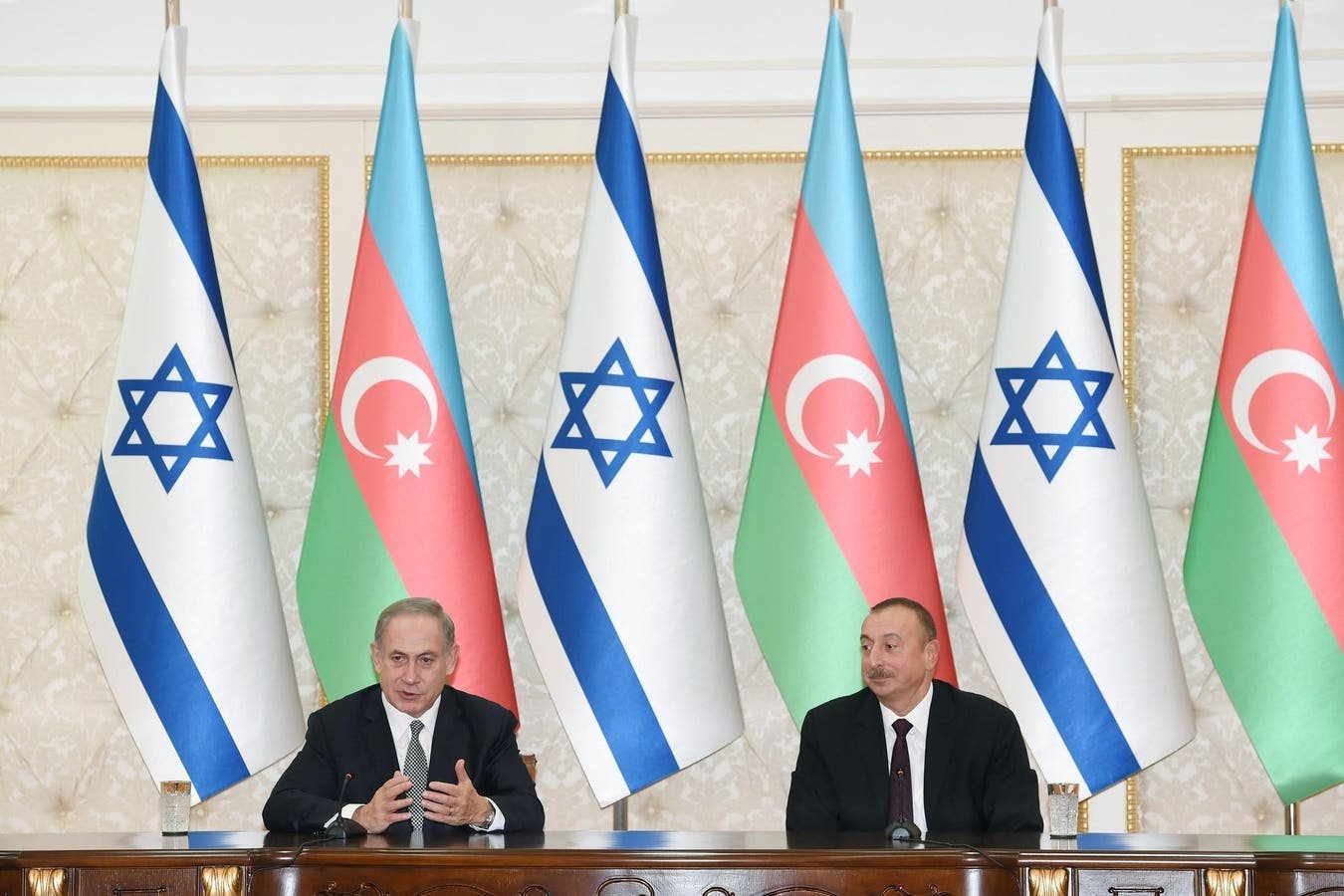The deepening relationship between Israel and Azerbaijan is one of the most important dynamics of … [+] the Middle East. It provides a framework for interfaith peace and cooperation, while also frustrating Tehran’s ambitions.
The Abraham Accords, the normalization of relations between Israel and several majority Muslim states, was the greatest foreign policy accomplishment of Donald J. Trump’s first administration. As his second term takes off, the president has made it clear that his administration will seek to an expansion of this groundbreaking framework.
One Muslim-majority country that already has a longstanding partnership with Israel and is an obvious candidate to join the Accords framework is Azerbaijan . On March 17th, an official delegation of SOCAR, the State Oil Company of the Azerbaijan Republic, will arrive in Israel to officially sign onto a previously-announced deal for a 10% stake in Israel’s Tamar Gas Field and simultaneously announce two even bigger energy projects within Israeli waters near the border with Lebanon – details, terms and conditions yet to be announced. The delegation will be headed by Mikayl Jabbarov, Minister of the Economy and one of the highest ranking Azerbaijani ministers. According to exclusive Forbes’ Israeli sources, BP, a veteran partner of SOCAR since the days of the Baku-Tbilisi-Ceyhan Main Export Pipeline “deal of the century” from the Capsian to the Mediterranean, is likely to be involved in the new venture.
Israeli-Azerbaijani Energy Cooperation
SOCAR’s expansive expertise with offshore drilling makes it perfectly suited for cooperating with … [+] Israeli energy ambitions.
The Tamar gas field is located offshore some 90 km west of Haifa, and the estimated reserves of natural gas in the reservoir are around 389 billion cubic meters. Chevron, one of the largest hydrocarbon producers in the US, owns 25% of Tamar and gave its blessing to add SOCAR to the consortium. This expansion of cooperation in Israel’s energy security with Azerbaijan – a secular state with a Muslim Shi’a majority, builds on over thirty years of cordial relations and joint projects in defense, energy, culture, air transportation, and foreign policy.
On March 5th the Office of the Prime Minister of Israel said that the Jewish state maintains a continuous dialogue with Washington, aiming to establish a strong foundation for trilateral collaboration between Israel, Azerbaijan, and the United States. Speaking on behalf of the government, National Missions Minister Orit Strock indicated strong support of a Knesset (Israeli parliament) initiative to deepen strategic cooperation with Azerbaijan, stating:
“Azerbaijan is a key strategic ally of Israel in the Caucasus region, with bilateral relations spanning security, trade, technology, energy, and agriculture. Over the years, these ties have deepened, based on mutual understanding of regional stability and cooperation for the benefit of both nations.”
Towards an Azerbaijani-Israeli-US Strategic Cooperation
Mikhayil Jabbarov, representative of a new clique of western-oriented technocratic experts in Baku, … [+] is overseeing much of the implementation of cooperation with Israel. His appointment signals the seriousness with which Baku places on the relationship.
Strengthening the Israeli-Azerbaijani energy alliance and proposals to add Azerbaijan to the Abraham Accords framework raises concerns in Tehran, which views these ties as a threat to the regime’s security. Azerbaijan is, in many respects, Tehran’s “worst nightmare”. Secular and tolerant of its minorities, Baku is managing to further its geopolitical ambitions without resorting to Shi’a Islamist militancy and the “Death to Israel, Death to America” politics and policies that have been the hallmark and rallying cry of the Tehran regime. In stark contrast, Baku is cultivating a thriving cooperation with the Jewish State and signaling that it is open for business with the U.S. and Europe. The Jewish minority population in Azerbaijan feels secure, while the large population of ethnic Azeris in northwestern Iran, numbering between 12 and 20 million, is a constant source of worry for Tehran.
On March 1st the Iranian state media mouthpiece Iran Daily ran a front page article titled “Israel’s Growing Footprint in Azerbaijan Raises Red Alert” calling on all Iranian experts and companies to formulate strategies to frustrate Baku’s ambitions and counter the emerging Israeli-Azeri-American alliance.
Specific countermeasures have included direct action initiatives such as increasing Iranian cooperation with Russia and Armenia, bolstering Iran’s military capabilities and conducting military exercises at the border with Azerbaijan, increasing economic coercion against the Azerbaijanis, cutting off Azeri trade routes, and various diplomatic initiatives to counter U.S. and Israeli pressure.
Indirect measures were also proposed. These include focusing on lobbying international partners to oppose Azerbaijan’s inclusion in the Abraham Accords, and trying to stymie support for the Middle Corridor transit route which would connect Azerbaijan to Central Asia via the Caspian Sea (thus marginalizing Russia and Iran) while instead promoting its north-south route directly with Russia.
Tehran also fears a possible repeal of Section 907 of the Freedom for Russia and Emerging Eurasian Democracies and Open Markets Support Act, FSA, HR 282, also known as the Freedom Support Act. Section 907 forbids US aid and arms sales to the Azeri government due to the tensions ongoing in 1992 between Armenia and Azerbaijan over the contested Nagorno-Karabakh region. This bill was passed before Armenia embraced Iran as an ally, before Nagorno-Karabakh was brought under Azerbaijan’s control in 2020-2023, and before Azerbaijan and Armenia began bilateral negotiations to settle the issue and normalize relations. Nevertheless, Section 907 is still on the books, a legacy of the post-Soviet environment, preventing the application of substantial pressure on Iran’s northwestern border and the full realization of the potentials of expanding the Abraham Accords.
A string of defeats in Syria, Yemen, and Gaza have put Iran on the backfoot. Still, Tehran retains significant capacity. To help contain the theocratic dictatorship and its aggressive nuclear ambitions, and to help realize the tremendous potential of the Abraham Accords for peace and prosperity, the Accords need to be expanded, Israeli-Azerbaijan-American trilateral cooperation deepened, Section 907 repealed, and the new energy deals in Eastern Mediterranean and, more broadly, in the Middle East, with Israeli and Azerbaijani participation encouraged to move forward.
